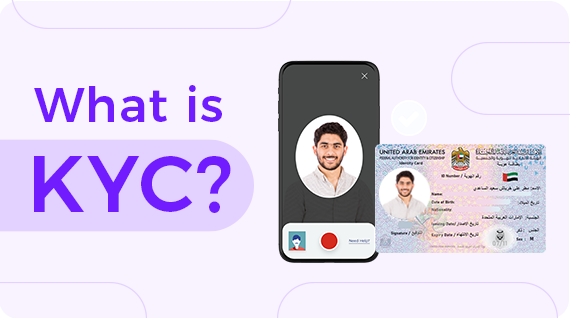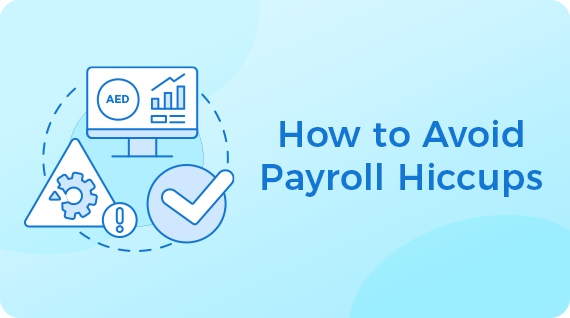Understanding the impact of VAT on payroll is crucial especially if you are a business owner or employer in the UAE. Even if there is no income tax that individuals need to worry about, there might still be factors that could affect payslips and pay stubs in this process. Let’s take a look at the significance of payslips and dig deeper into how VAT could affect some of your business operations.
Understanding VAT in the UAE
VAT is an indirect tax imposed on goods and services. When introduced in the UAE on 01 January 2018, a standard rate of 5% was introduced on items such as electronics, smart phones, cars, jewellery, watches, eating out, and entertainment.
There is no individual income tax or inheritance tax in the UAE. However, VAT-registered businesses are required to collect this 5% from their customers on behalf of the government.
It is important for VAT-registered businesses to:
- mandatorily charge VAT on taxable goods or services they supply.
- reclaim any VAT they have paid on business-related goods or services.
- maintain their business records which will allow the government to check whether everything is in order.
VAT-registered businesses must report the amount of VAT they have charged and the amount of VAT they have paid to the government on a regular basis. It will be a formal submission and reporting will be done online.
If businesses have charged more VAT than they have paid, then they must pay the difference to the government. If they have paid more VAT than they have charged, they can reclaim the difference.
The exceptions
Not all products or services are subject to the 5% VAT. There are certain business activities that supply ‘zero-rated’ goods and services charged at a VAT rate of 0%.
These zero-rated supplies include:
- Export of goods and services outside the Gulf Cooperation Council (GCC includes Bahrain, Kuwait, Oman, Qatar, Saudi Arabia, and the United Arab Emirates)
- Any kind of international transportation, which could also include supply of sea, land, or air as a means of transport
- Supply of investment-grade precious metals (silver, gold, platinum)
- Residential estate
- Supply of education services and healthcare services
In 2018, the UAE government announced a specific list of 100 items from food, health, education, bicycles, and social services, to be exempt from VAT. Their intention is to exempt as many supplies as possible that are likely to impact the common man and ensure that the impact of VAT is at a minimum.
How VAT can still affect your business
- Employee Compensation: VAT does not directly affect employee salaries, as it is not deducted from their pay. However, businesses need to account for VAT on employee-related expenses, such as benefits, allowances, and services provided to employees. Failure to properly manage VAT-related expenses can lead to financial discrepancies and potential penalties.
- Business Expenses: VAT is levied on most goods and services procured by businesses, including office supplies, professional services, and utility bills. These expenses directly impact a company’s cash flow, as VAT paid on purchases can be recovered through the VAT return process. It is important to accurately track and record VAT on business expenses to ensure compliance and to be able to maximize VAT recovery.
- Compliance and Reporting: Managing VAT obligations involves regular filing of VAT returns and maintaining proper records. This process can be time-consuming and complex, requiring meticulous attention to detail. Accuracy in reporting VAT-related information is crucial to avoid penalties or for potential audits. A reliable payroll services platform can help streamline these processes, ensuring compliance and reducing the administrative burden on businesses.
The Reverse Charge Mechanism
A reverse charge mechanism (RCM) is when the supplier does not charge and collect VAT from their customers. The customers basically pay the tax directly to the government.
In this situation, the customers keep their records and remit the VAT amount to the Federal Tax Authority (FTA). So, the responsibility of reporting and paying VAT transactions lies with the recipient, instead of the seller.
The RCM is usually used for cross-border transactions in the UAE. While it could be a complex task for the FTA to track the transactions of a local business and their overseas’ suppliers/sellers, this system surely helps to reduce the burden of non-resident suppliers who tend to skip the hassle of registering and remitting VAT to the UAE.
The reverse charge mechanism applies to these situations:
- If your company is involved in importing goods and services from the overseas or a non-GCC region. These foreign companies must not have a business in the UAE.
- If your company is involved in any taxable supply of gold and diamonds.
- If your company is involved in any taxable supply of crude oils, refined oil, unprocessed gas or hydrocarbons for resale or production – by a registered supplier to the registered recipient in the mainland UAE.
- If your company is involved in any purchase of goods from the designated zones (freezones) to the mainland UAE.
Conclusion
The introduction of VAT in the UAE has brought about significant changes in business operations, including its impact on payroll management. Business owners must understand the implications of VAT on their payroll in order to remain compliant, reduce administrative burdens, and keep their operations hassle-free.
If you would like to read more about the latest VAT regulations and eligibility criteria, you can read about it here.
For more information related to your employees’ financial rights, WPS-compliant salary processing or payroll services in UAE, feel free to reach out to us on info.ae@edenred.com





